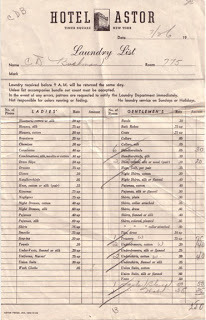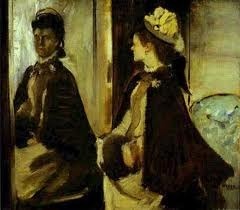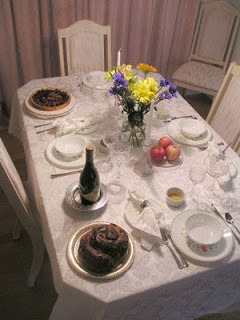Terry Odell's Blog, page 284
April 22, 2011
Friday Field Trip - Florissant Fossil Beds
Since nobody has sent me any pictures to share, you're stuck with my last trip to Florissant Fossil Beds. Now that I'm dealing with coming up with my own cover art, I thought I'd take some pictures that might end up with some sort of potential someday, as my next book is set in this vicinity. And please, if you like this feature, send me something to share!
I'll also remind you to check back tomorrow to see who won Jenyfer Matthews' giveaway. And don't forget my contest.








I'll also remind you to check back tomorrow to see who won Jenyfer Matthews' giveaway. And don't forget my contest.







Published on April 22, 2011 04:00
April 21, 2011
On Being a Minority
Thanks and welcome to my new followers. I can't believe I'm almost at 300. And don't forget to leave a comment on Jenyfer Matthews' post (scroll down to Tuesday). She's giving away an ARC. And why haven't you entered my contest? It's not that hard!
We're in the midst of Passover, and it's interesting to compare our celebrations over the past few years. Two years ago, we were still in Florida. No family around, so I invited another couple (non-Jews) to share our Seder. Last year, we were renting a small apartment in Monument, and although I had no real kitchen, family was nearby, so I went to my daughter's house and cooked, and we had the first "family" meal in quite some time. This year, we're up in Divide, and we can have a family Seder again.
 I discovered that ethnic foods here are 85% Hispanic. A little Asian, and a smattering of Indian. I was able to find a few "Jewish" items in the local chains. (We have one small grocery store in Divide, and its ethic food section is more like 95% Hispanic. For "real" shopping we go to Woodland Park, where there are 2 grocery stores and a Walmart.)
I discovered that ethnic foods here are 85% Hispanic. A little Asian, and a smattering of Indian. I was able to find a few "Jewish" items in the local chains. (We have one small grocery store in Divide, and its ethic food section is more like 95% Hispanic. For "real" shopping we go to Woodland Park, where there are 2 grocery stores and a Walmart.)
I checked out the "Jewish" offerings at the two grocery stores there. Yes, they had a few items, but not the special "Kosher for Passover" variety. I figured the kids down in Colorado Springs would be able to get the appropriate foodstuffs, and would take advantage of their finds.
Again, since my daughter has the most room, but works all day, I volunteered to do the cooking. On the way down, we made a quick stop at Walmart for something entirely different, but I did a quick sweep through the grocery section to see if they had stocked anything for Passover. I didn't expect it, as they have never had any "Jewish" foods. In fact, at Christmas/Hanukkah time, I asked a clerk where the wrapping paper was, and said, "Not Christmas." He asked if I was a Jehovah's Witness.
At any rate, at the register, the clerk recited her, "Did you find everything you needed?" line, and I said, "Not really." Her response was, "That'll be $10.42." I did ask if there was a Passover section I might not have seen, and got a blank stare. "Passover," I said again. She shrugged and said, "I guess you could try Hobby Lobby."
As for writing: I could stick something in here about putting your characters in situations where they don't have what they're used to, but I think you can extrapolate for yourselves. Instead, I'll share a recipe. This one is Jessica's, and I confess I haven't tried it yet. All commentary is hers.

INGREDIENTS:
5 cups flaked sweetened coconut
3 egg whites
1/2 cup sugar
1/4 tsp. vanilla
2/3 cup mini chocolate chips or finely chopped chocolate
PREPARATION:
Preheat oven to 325 degrees. Line baking sheets with silicon mats or parchment sprayed with cooking spray.
Mix all ingredients together in a large bowl. Scoop out 1 inch mounds, placed about 1 inch apart, on a lined cookie sheet.
Bake for 15 minutes, until just turning brown. Cool and store in a sealed container between sheets of waxed or parchment paper.
The macaroons will keep nicely for several days. Variation: Divide the coconut mixture in half, and add the chips to one half, leaving the other half plain. Adding cocoa powder also works, but you'll have to experiment with the amount until they're chocolaty enough!
I form them into balls with medium pressure, instead of just scoops, to help them hold their shape.
Makes about 5 dozen macaroons.
We're in the midst of Passover, and it's interesting to compare our celebrations over the past few years. Two years ago, we were still in Florida. No family around, so I invited another couple (non-Jews) to share our Seder. Last year, we were renting a small apartment in Monument, and although I had no real kitchen, family was nearby, so I went to my daughter's house and cooked, and we had the first "family" meal in quite some time. This year, we're up in Divide, and we can have a family Seder again.
 I discovered that ethnic foods here are 85% Hispanic. A little Asian, and a smattering of Indian. I was able to find a few "Jewish" items in the local chains. (We have one small grocery store in Divide, and its ethic food section is more like 95% Hispanic. For "real" shopping we go to Woodland Park, where there are 2 grocery stores and a Walmart.)
I discovered that ethnic foods here are 85% Hispanic. A little Asian, and a smattering of Indian. I was able to find a few "Jewish" items in the local chains. (We have one small grocery store in Divide, and its ethic food section is more like 95% Hispanic. For "real" shopping we go to Woodland Park, where there are 2 grocery stores and a Walmart.)I checked out the "Jewish" offerings at the two grocery stores there. Yes, they had a few items, but not the special "Kosher for Passover" variety. I figured the kids down in Colorado Springs would be able to get the appropriate foodstuffs, and would take advantage of their finds.
Again, since my daughter has the most room, but works all day, I volunteered to do the cooking. On the way down, we made a quick stop at Walmart for something entirely different, but I did a quick sweep through the grocery section to see if they had stocked anything for Passover. I didn't expect it, as they have never had any "Jewish" foods. In fact, at Christmas/Hanukkah time, I asked a clerk where the wrapping paper was, and said, "Not Christmas." He asked if I was a Jehovah's Witness.
At any rate, at the register, the clerk recited her, "Did you find everything you needed?" line, and I said, "Not really." Her response was, "That'll be $10.42." I did ask if there was a Passover section I might not have seen, and got a blank stare. "Passover," I said again. She shrugged and said, "I guess you could try Hobby Lobby."
As for writing: I could stick something in here about putting your characters in situations where they don't have what they're used to, but I think you can extrapolate for yourselves. Instead, I'll share a recipe. This one is Jessica's, and I confess I haven't tried it yet. All commentary is hers.

INGREDIENTS:
5 cups flaked sweetened coconut
3 egg whites
1/2 cup sugar
1/4 tsp. vanilla
2/3 cup mini chocolate chips or finely chopped chocolate
PREPARATION:
Preheat oven to 325 degrees. Line baking sheets with silicon mats or parchment sprayed with cooking spray.
Mix all ingredients together in a large bowl. Scoop out 1 inch mounds, placed about 1 inch apart, on a lined cookie sheet.
Bake for 15 minutes, until just turning brown. Cool and store in a sealed container between sheets of waxed or parchment paper.
The macaroons will keep nicely for several days. Variation: Divide the coconut mixture in half, and add the chips to one half, leaving the other half plain. Adding cocoa powder also works, but you'll have to experiment with the amount until they're chocolaty enough!
I form them into balls with medium pressure, instead of just scoops, to help them hold their shape.
Makes about 5 dozen macaroons.
Published on April 21, 2011 04:00
April 20, 2011
7 Considerations When Writing Descriptions
Thanks to Jenyfer for her post yesterday. Most of us haven't had to pick up stakes without notice, especially not knowing if or when we can get back to what we considered "normal." And don't forget, she's got a prize for one commenter, and you have until Friday to enter. Scroll down and leave a comment under her post if you haven't already.
On Monday, I talked about how descriptions are tied into the depth of POV you're using for your story. I write deep POV, generally 3rd person. I prefer it, so this post is geared toward descriptions using that viewpoint.
Seven things to consider when writing descriptions.
 1. What's happening in the story? Is it an action scene? If so, would your character really be noticing what you've spent three paragraphs describing? If bullets are flying, or the bad guys are on the way, or even if they think the bad guys might be on the way, where's their attention going to be focused? They're likely to be listening and watching—but for things 'bad guy' related, not that the sounds of the surf reminds them of that delightful vacation they took five years ago to Hawaii—and, this is definitely not the place to stop and have them remember what they did on that vacation.
1. What's happening in the story? Is it an action scene? If so, would your character really be noticing what you've spent three paragraphs describing? If bullets are flying, or the bad guys are on the way, or even if they think the bad guys might be on the way, where's their attention going to be focused? They're likely to be listening and watching—but for things 'bad guy' related, not that the sounds of the surf reminds them of that delightful vacation they took five years ago to Hawaii—and, this is definitely not the place to stop and have them remember what they did on that vacation.
2. Who is your character? Would a guy who's idea of a good time is sitting on the couch, thumb on remote, flipping between 3 football games actually notice (or even know) that the woman entering the room at a banquet is wearing a specific designer label? Would he recognize the music playing in the room as Vivaldi? Would he know the painting on the wall is an original (or copy) of a Degas? Would he describe the color of the walls as mauve, taupe or ecru? Does he know what those colors are?
3. Where is your character? Often, you'll see a character mentioning that the character entering the room is wearing a "grey wool suit" or a "red silk blouse" or something to that effect. I don't know about you, but I can't recognize fabrics from a distance—heck, I probably wouldn't recognize them if I touched them. Can you spot the difference between 'silk' and 'silky'? These sorts of observations, while adding to description, can slow the pace if it's not something that would be logical for the character to recognize. Those sorts of details put the author on the page.
4. What's your character's emotional state? I mentioned this one in Monday's post. Even observant people will "miss" stuff if they're distracted. If they're falling in love, their world will probably center around the person they're falling in love with. If they're angry, they're going to be tied up in the physiological responses that go along with that extra adrenaline. Are they worried about a loved one? Have they just been forced to pack up and leave their home? We tend to turn our thoughts inward, and don't pay a lot of attention to details of things around us.
5. Are you showing the reader your research? While it's true that readers (myself included) like learning new things as they read, bombarding them with facts, however interesting, means you're stopping the story. Would your character be thinking about the architect who designed the building she's passing? If so, if there's a logical reason, if it makes sense for the character to be thinking about it, then go for it. Otherwise, make sure you're not just showing off.
6. How much description do you really need? And is this the best place to show it? I know one author who will stop at the beginning of any chapter that moves to a new location, and her character will take it all in. I find myself skimming those parts, as they've never seemed to have any bearing on the story itself. With other authors, if something is mentioned, you can be darn sure it's there for a reason.
 When a character enters a room, how much do you need to show? Usually, less is more. A laundry list of everything will probably bore your reader. Pick out a few items that give the impression of the room without mentioning each one, and again, keep it true to your character. In an early draft of Finding Sarah, I had my cop hero checking out the heroine's living room. There was a reason for it, as someone had been in her apartment, and they were seeing if there was anything amiss. In that draft, he noticed the two bargello print chairs in the heroine's living room. But why would he know they were bargello? Since he wouldn't, he merely noticed "two patterned upholstered armchairs."
When a character enters a room, how much do you need to show? Usually, less is more. A laundry list of everything will probably bore your reader. Pick out a few items that give the impression of the room without mentioning each one, and again, keep it true to your character. In an early draft of Finding Sarah, I had my cop hero checking out the heroine's living room. There was a reason for it, as someone had been in her apartment, and they were seeing if there was anything amiss. In that draft, he noticed the two bargello print chairs in the heroine's living room. But why would he know they were bargello? Since he wouldn't, he merely noticed "two patterned upholstered armchairs."
 7. Avoid the cliché pitfalls. If you're writing deep POV, it's going to be a bit harder to show things your character takes for granted. Think about it. Do you run your fingers through your long, auburn curls? I doubt it. You run them through your hair, to be sure, but are you thinking about much more than that? Likewise, are you writing, "her flowered blue silk skirt swished as she walked?" Would you think of those details, or just that your skirt is making swishing sounds. And please, avoid the overused look in the mirror gambit unless you have a very good reason—and can do it well. Why is your character looking in the mirror? It's usually better to wait for another character to show up so you can see things through their eyes, or through conversation. When you show details a character isn't likely to think about, you're moving out of deep POV. And if you're writing first person, you definitely need to be inside your character's head. (image: Edgar Degas - Madame Jeantaud in the mirror)
7. Avoid the cliché pitfalls. If you're writing deep POV, it's going to be a bit harder to show things your character takes for granted. Think about it. Do you run your fingers through your long, auburn curls? I doubt it. You run them through your hair, to be sure, but are you thinking about much more than that? Likewise, are you writing, "her flowered blue silk skirt swished as she walked?" Would you think of those details, or just that your skirt is making swishing sounds. And please, avoid the overused look in the mirror gambit unless you have a very good reason—and can do it well. Why is your character looking in the mirror? It's usually better to wait for another character to show up so you can see things through their eyes, or through conversation. When you show details a character isn't likely to think about, you're moving out of deep POV. And if you're writing first person, you definitely need to be inside your character's head. (image: Edgar Degas - Madame Jeantaud in the mirror)
Any pet peeves about descriptions? Any techniques you find that enhance a story?

On Monday, I talked about how descriptions are tied into the depth of POV you're using for your story. I write deep POV, generally 3rd person. I prefer it, so this post is geared toward descriptions using that viewpoint.
Seven things to consider when writing descriptions.
 1. What's happening in the story? Is it an action scene? If so, would your character really be noticing what you've spent three paragraphs describing? If bullets are flying, or the bad guys are on the way, or even if they think the bad guys might be on the way, where's their attention going to be focused? They're likely to be listening and watching—but for things 'bad guy' related, not that the sounds of the surf reminds them of that delightful vacation they took five years ago to Hawaii—and, this is definitely not the place to stop and have them remember what they did on that vacation.
1. What's happening in the story? Is it an action scene? If so, would your character really be noticing what you've spent three paragraphs describing? If bullets are flying, or the bad guys are on the way, or even if they think the bad guys might be on the way, where's their attention going to be focused? They're likely to be listening and watching—but for things 'bad guy' related, not that the sounds of the surf reminds them of that delightful vacation they took five years ago to Hawaii—and, this is definitely not the place to stop and have them remember what they did on that vacation.2. Who is your character? Would a guy who's idea of a good time is sitting on the couch, thumb on remote, flipping between 3 football games actually notice (or even know) that the woman entering the room at a banquet is wearing a specific designer label? Would he recognize the music playing in the room as Vivaldi? Would he know the painting on the wall is an original (or copy) of a Degas? Would he describe the color of the walls as mauve, taupe or ecru? Does he know what those colors are?
3. Where is your character? Often, you'll see a character mentioning that the character entering the room is wearing a "grey wool suit" or a "red silk blouse" or something to that effect. I don't know about you, but I can't recognize fabrics from a distance—heck, I probably wouldn't recognize them if I touched them. Can you spot the difference between 'silk' and 'silky'? These sorts of observations, while adding to description, can slow the pace if it's not something that would be logical for the character to recognize. Those sorts of details put the author on the page.
4. What's your character's emotional state? I mentioned this one in Monday's post. Even observant people will "miss" stuff if they're distracted. If they're falling in love, their world will probably center around the person they're falling in love with. If they're angry, they're going to be tied up in the physiological responses that go along with that extra adrenaline. Are they worried about a loved one? Have they just been forced to pack up and leave their home? We tend to turn our thoughts inward, and don't pay a lot of attention to details of things around us.
5. Are you showing the reader your research? While it's true that readers (myself included) like learning new things as they read, bombarding them with facts, however interesting, means you're stopping the story. Would your character be thinking about the architect who designed the building she's passing? If so, if there's a logical reason, if it makes sense for the character to be thinking about it, then go for it. Otherwise, make sure you're not just showing off.
6. How much description do you really need? And is this the best place to show it? I know one author who will stop at the beginning of any chapter that moves to a new location, and her character will take it all in. I find myself skimming those parts, as they've never seemed to have any bearing on the story itself. With other authors, if something is mentioned, you can be darn sure it's there for a reason.
 When a character enters a room, how much do you need to show? Usually, less is more. A laundry list of everything will probably bore your reader. Pick out a few items that give the impression of the room without mentioning each one, and again, keep it true to your character. In an early draft of Finding Sarah, I had my cop hero checking out the heroine's living room. There was a reason for it, as someone had been in her apartment, and they were seeing if there was anything amiss. In that draft, he noticed the two bargello print chairs in the heroine's living room. But why would he know they were bargello? Since he wouldn't, he merely noticed "two patterned upholstered armchairs."
When a character enters a room, how much do you need to show? Usually, less is more. A laundry list of everything will probably bore your reader. Pick out a few items that give the impression of the room without mentioning each one, and again, keep it true to your character. In an early draft of Finding Sarah, I had my cop hero checking out the heroine's living room. There was a reason for it, as someone had been in her apartment, and they were seeing if there was anything amiss. In that draft, he noticed the two bargello print chairs in the heroine's living room. But why would he know they were bargello? Since he wouldn't, he merely noticed "two patterned upholstered armchairs." 7. Avoid the cliché pitfalls. If you're writing deep POV, it's going to be a bit harder to show things your character takes for granted. Think about it. Do you run your fingers through your long, auburn curls? I doubt it. You run them through your hair, to be sure, but are you thinking about much more than that? Likewise, are you writing, "her flowered blue silk skirt swished as she walked?" Would you think of those details, or just that your skirt is making swishing sounds. And please, avoid the overused look in the mirror gambit unless you have a very good reason—and can do it well. Why is your character looking in the mirror? It's usually better to wait for another character to show up so you can see things through their eyes, or through conversation. When you show details a character isn't likely to think about, you're moving out of deep POV. And if you're writing first person, you definitely need to be inside your character's head. (image: Edgar Degas - Madame Jeantaud in the mirror)
7. Avoid the cliché pitfalls. If you're writing deep POV, it's going to be a bit harder to show things your character takes for granted. Think about it. Do you run your fingers through your long, auburn curls? I doubt it. You run them through your hair, to be sure, but are you thinking about much more than that? Likewise, are you writing, "her flowered blue silk skirt swished as she walked?" Would you think of those details, or just that your skirt is making swishing sounds. And please, avoid the overused look in the mirror gambit unless you have a very good reason—and can do it well. Why is your character looking in the mirror? It's usually better to wait for another character to show up so you can see things through their eyes, or through conversation. When you show details a character isn't likely to think about, you're moving out of deep POV. And if you're writing first person, you definitely need to be inside your character's head. (image: Edgar Degas - Madame Jeantaud in the mirror)Any pet peeves about descriptions? Any techniques you find that enhance a story?
Published on April 20, 2011 04:00
April 19, 2011
Story of My Life
I'm pleased to welcome Jenyfer Matthews back to my blog. I met Jenyfer Matthews online when we were both writing for Cerridwen Press and she had just moved with her family to Cairo, Egypt from the United Arab Emirates. Jenyfer is back in the United States now, but not entirely by choice…
As a rule, I don't a write mysteries so I don't have to know each plot point before I start writing my story. I am what is known in the writing world as a "pantster", meaning I write by the seat of my pant - or in other words, I make it all up as I go along. Something will inspire a story idea, I'll get an inkling of the big turning points, and I might even have a glimmer of how I want the story to end then off I go.
 Generally, my stories start with me exploding my character's life and then waiting to see how they react. I have to admit, the process is much more fun in my head than it is in real life. Up until February 1st, I lived in Cairo, Egypt. Then everything… changed.
Generally, my stories start with me exploding my character's life and then waiting to see how they react. I have to admit, the process is much more fun in my head than it is in real life. Up until February 1st, I lived in Cairo, Egypt. Then everything… changed.
I was just minding my own business – putting the children on the school bus in the morning, grocery shopping, doing (never ending) housework, and planning out my writing goals for the year when the Egyptian Revolution occurred.
People have asked me over and over if I saw it coming. Yes and no. On the one hand, given the general societal oppression and how many police it required to keep people under control for as long as they did, no, it was not a surprise. On the other hand, things had been going along as they were for so long it seemed as if nothing would ever change. Ironically, when I heard that there was a protest planned on January 25th which was also Police Day, an Egyptian national holiday, I actually felt a little sorry for the police because they wouldn't get their day off!
(What can I say? I wasn't "friends" with any of the organizers on Facebook, nor do I read Arabic!)
My family lived in Cairo for close to six years and were hunkered down in our home for nearly a week before we evacuated. Maybe I was in denial, but I never dreamed when I boarded the US Embassy evacuation flight to Istanbul on February 1st that my children and I wouldn't be going back. (I later discovered that looters came within three doors of my building two nights before we left – close call!). I knew things were bad, and that it would take a while to sort out, but here I am nearly three months later, biding my time with friends in Ohio, waiting to see what happens next while my husband continues his job in Egypt.
One thing that I had to do almost immediately was enroll my children in public school – I am not cut out for homeschooling! The next thing I had to do was get myself a car. I haven't owned a car in six years and I can't say I've missed it much. It's easy to get around in Cairo on foot or in taxis and I admit I was never once tempted to try and drive there. Since I am unsure of my long term plans I didn't want to commit to a car note so I bought the best used car I could find – my first manual transmission. It's just the kind of thing that sadistic authors do to make their character's lives harder – making them learn a new skill in a time of great stress. It is also a device that can also be used to great comic effect. Ask me how much I laughed as I accidentally peeled out in great volume when leaving the zoo parking lot a couple of weekends ago?
(If learning new skills keeps you young, I think I must have found the fountain of youth lately.)
What does happen next for me in the ongoing story of my life? I haven't a clue. I may need to look for a job, though after ten years out of the work I'm not the strongest applicant (on paper anyway). That is another scenario in the storyline that might make for some laughter – or tears. For now, I'm making it up as I go along, one day at a time.
For more about Jennifer and her books, including excerpts and buy links, visit her website. Leave a comment today and she'll pick one lucky person to win a signed proof copy of SEPARATION ANXIETY (no extra charge for typos!). The winner will be announced on Saturday, so be sure to check in. You don't want to forfeit your prize.
As a rule, I don't a write mysteries so I don't have to know each plot point before I start writing my story. I am what is known in the writing world as a "pantster", meaning I write by the seat of my pant - or in other words, I make it all up as I go along. Something will inspire a story idea, I'll get an inkling of the big turning points, and I might even have a glimmer of how I want the story to end then off I go.
 Generally, my stories start with me exploding my character's life and then waiting to see how they react. I have to admit, the process is much more fun in my head than it is in real life. Up until February 1st, I lived in Cairo, Egypt. Then everything… changed.
Generally, my stories start with me exploding my character's life and then waiting to see how they react. I have to admit, the process is much more fun in my head than it is in real life. Up until February 1st, I lived in Cairo, Egypt. Then everything… changed.I was just minding my own business – putting the children on the school bus in the morning, grocery shopping, doing (never ending) housework, and planning out my writing goals for the year when the Egyptian Revolution occurred.
People have asked me over and over if I saw it coming. Yes and no. On the one hand, given the general societal oppression and how many police it required to keep people under control for as long as they did, no, it was not a surprise. On the other hand, things had been going along as they were for so long it seemed as if nothing would ever change. Ironically, when I heard that there was a protest planned on January 25th which was also Police Day, an Egyptian national holiday, I actually felt a little sorry for the police because they wouldn't get their day off!
(What can I say? I wasn't "friends" with any of the organizers on Facebook, nor do I read Arabic!)
My family lived in Cairo for close to six years and were hunkered down in our home for nearly a week before we evacuated. Maybe I was in denial, but I never dreamed when I boarded the US Embassy evacuation flight to Istanbul on February 1st that my children and I wouldn't be going back. (I later discovered that looters came within three doors of my building two nights before we left – close call!). I knew things were bad, and that it would take a while to sort out, but here I am nearly three months later, biding my time with friends in Ohio, waiting to see what happens next while my husband continues his job in Egypt.
One thing that I had to do almost immediately was enroll my children in public school – I am not cut out for homeschooling! The next thing I had to do was get myself a car. I haven't owned a car in six years and I can't say I've missed it much. It's easy to get around in Cairo on foot or in taxis and I admit I was never once tempted to try and drive there. Since I am unsure of my long term plans I didn't want to commit to a car note so I bought the best used car I could find – my first manual transmission. It's just the kind of thing that sadistic authors do to make their character's lives harder – making them learn a new skill in a time of great stress. It is also a device that can also be used to great comic effect. Ask me how much I laughed as I accidentally peeled out in great volume when leaving the zoo parking lot a couple of weekends ago?
(If learning new skills keeps you young, I think I must have found the fountain of youth lately.)
What does happen next for me in the ongoing story of my life? I haven't a clue. I may need to look for a job, though after ten years out of the work I'm not the strongest applicant (on paper anyway). That is another scenario in the storyline that might make for some laughter – or tears. For now, I'm making it up as I go along, one day at a time.
For more about Jennifer and her books, including excerpts and buy links, visit her website. Leave a comment today and she'll pick one lucky person to win a signed proof copy of SEPARATION ANXIETY (no extra charge for typos!). The winner will be announced on Saturday, so be sure to check in. You don't want to forfeit your prize.
Published on April 19, 2011 05:00
April 18, 2011
Scenes, Descriptions and POV
What I'm reading: Snake Skin by C.J. Lyons, Wicked Becomes You, by Meredith Duran
Want to win 21 mystery books? Check the Deals and Steals tab.
One of the "perks" to getting the rights back to a previously published book, especially one you wrote years ago—and ever more especially, your very first published book—is that you can make changes. I've already talked—at length—about updating the book to make it more current. But what about just making a better book?
So, as I await getting the rights back to my first book, I'm working on improving it. I've gone back and looked at some early drafts, and parts I cut before submitting. The first draft of the book was 143,000 words long. The published version: just under 90,000. So there were a LOT of cuts.
 I went back to some very early drafts. One scene showed my hero and heroine in a restaurant. In my efforts to paint clear pictures for readers, I'd spent several paragraphs on the waiter coming to the table, taking orders, and the usual "mundane" stuff that accompanies eating out.
I went back to some very early drafts. One scene showed my hero and heroine in a restaurant. In my efforts to paint clear pictures for readers, I'd spent several paragraphs on the waiter coming to the table, taking orders, and the usual "mundane" stuff that accompanies eating out.
I was tempted to include some of that scene. After all, aren't we supposed to include descriptions, involve the senses, and make things realistic for the reader? And I thought I'd done a halfway decent job, trying to Show, not Tell.
This was what I had (and I've not edited it at all—it's here for content only; this was written in 2003, so be kind with your thoughts.)
A young blonde waiter stepped to their table, lit the standard restaurant candle-in-a-jar and asked to take their drink orders.
Randy raised his eyebrow at Sarah.
"I'll have a glass of your house white, please," she said to the waiter.
"Club soda for me," Randy said.
The youth plopped a menu in front of each of them and walked away.
"Guess the new trainees work the slow nights," Sarah said. "I haven't been here in a couple of months. Do you know what's good?"
"Me? No, I don't think I've been here in a long time, either." He picked up his menu.
Sarah perused the offerings and closed her menu. "I'll try the salmon. They're supposed to do seafood very well here. I hope there's not a trainee in the kitchen, too."
Randy rewarded her with a small smile. "I'm going to stay away from fish. I'll have chicken tarragon."
The waiter returned with their drinks and they placed their food orders. "Thank you," he said as he picked up their menus.
"I can't understand why anyone would get his tongue pierced," Sarah said after he'd left.
Randy shook his head. "Neither can I."
Now, it's not humiliatingly awful, and with a little tweaking, could probably be slipped back into the scene. Except for one detail.
POV! No, I don't mean I've head-hopped. The scene is in Sarah's POV, and we're in her head. Or are we? What's not on the page is the setup—Randy has just been through a very emotional experience, and Sarah's been trying to help him through it. On top of that, she's dealing with business crises at her shop, and Randy is the officer on her case. In other words, they're both dealing with problems, and are emotionally distraught.
This is probably not a time they'd be noticing restaurant details, especially since there's nothing "non-restaurant-experience" going on. (I think in an even earlier draft, I'd spent more time with the wait staff—showed them being greeted, led to their table, had someone fill the water glasses, tell them, "Your server will be right with you," and described everyone in what for me is considerable detail, down to tats and piercings as well as hair and eye color. Not to mention filling in all the time where the waiter returns with drinks and takes their food orders, etc.) You get the picture.
It was unnecessary to show them entering the restaurant, Randy checking out the basketball game on the TV above the bar, making a point of wanting a booth in the back, etc., etc. Description has to be true to the character AND to the specifics of the scene. Randy is a cop—normally, he's very observant. But, 1) the scene is in Sarah's POV, and 2) given their emotional states, neither would be noticing all these little details.
Now, if you're writing shallow POV, then it's a different matter to step back and show lots of details. But I don't. To me, that's distancing. And, especially in an emotional scene, I want to be down deep inside the characters' heads. Needless to say, I didn't go back and flesh out the scene as it was published. I left it alone. There's enough "show" without going into too much detail. At least I think so.
A bored-looking waiter hovered by the table. "Getcha something to drink?"
"A glass of white wine for me," Sarah said. She looked up at Randy, who was staring at the table.
"Club soda," he said without raising his eyes.
"Gotcha. Be right back," the waiter said. He plopped two menus on the table and shuffled away.
Randy buried himself behind his menu, and Sarah studied hers without speaking.
Tomorrow, my guest is Jenyfer Matthews. She's recently returned from Egypt (not by choice) and has some very interesting things to share. And, she's giving away an advance reader copy of her next book. I'll continue with more about descriptions and POV on Wednesday. Make sure you come back.
Want to win 21 mystery books? Check the Deals and Steals tab.
One of the "perks" to getting the rights back to a previously published book, especially one you wrote years ago—and ever more especially, your very first published book—is that you can make changes. I've already talked—at length—about updating the book to make it more current. But what about just making a better book?
So, as I await getting the rights back to my first book, I'm working on improving it. I've gone back and looked at some early drafts, and parts I cut before submitting. The first draft of the book was 143,000 words long. The published version: just under 90,000. So there were a LOT of cuts.
 I went back to some very early drafts. One scene showed my hero and heroine in a restaurant. In my efforts to paint clear pictures for readers, I'd spent several paragraphs on the waiter coming to the table, taking orders, and the usual "mundane" stuff that accompanies eating out.
I went back to some very early drafts. One scene showed my hero and heroine in a restaurant. In my efforts to paint clear pictures for readers, I'd spent several paragraphs on the waiter coming to the table, taking orders, and the usual "mundane" stuff that accompanies eating out.I was tempted to include some of that scene. After all, aren't we supposed to include descriptions, involve the senses, and make things realistic for the reader? And I thought I'd done a halfway decent job, trying to Show, not Tell.
This was what I had (and I've not edited it at all—it's here for content only; this was written in 2003, so be kind with your thoughts.)
A young blonde waiter stepped to their table, lit the standard restaurant candle-in-a-jar and asked to take their drink orders.
Randy raised his eyebrow at Sarah.
"I'll have a glass of your house white, please," she said to the waiter.
"Club soda for me," Randy said.
The youth plopped a menu in front of each of them and walked away.
"Guess the new trainees work the slow nights," Sarah said. "I haven't been here in a couple of months. Do you know what's good?"
"Me? No, I don't think I've been here in a long time, either." He picked up his menu.
Sarah perused the offerings and closed her menu. "I'll try the salmon. They're supposed to do seafood very well here. I hope there's not a trainee in the kitchen, too."
Randy rewarded her with a small smile. "I'm going to stay away from fish. I'll have chicken tarragon."
The waiter returned with their drinks and they placed their food orders. "Thank you," he said as he picked up their menus.
"I can't understand why anyone would get his tongue pierced," Sarah said after he'd left.
Randy shook his head. "Neither can I."
Now, it's not humiliatingly awful, and with a little tweaking, could probably be slipped back into the scene. Except for one detail.
POV! No, I don't mean I've head-hopped. The scene is in Sarah's POV, and we're in her head. Or are we? What's not on the page is the setup—Randy has just been through a very emotional experience, and Sarah's been trying to help him through it. On top of that, she's dealing with business crises at her shop, and Randy is the officer on her case. In other words, they're both dealing with problems, and are emotionally distraught.
This is probably not a time they'd be noticing restaurant details, especially since there's nothing "non-restaurant-experience" going on. (I think in an even earlier draft, I'd spent more time with the wait staff—showed them being greeted, led to their table, had someone fill the water glasses, tell them, "Your server will be right with you," and described everyone in what for me is considerable detail, down to tats and piercings as well as hair and eye color. Not to mention filling in all the time where the waiter returns with drinks and takes their food orders, etc.) You get the picture.
It was unnecessary to show them entering the restaurant, Randy checking out the basketball game on the TV above the bar, making a point of wanting a booth in the back, etc., etc. Description has to be true to the character AND to the specifics of the scene. Randy is a cop—normally, he's very observant. But, 1) the scene is in Sarah's POV, and 2) given their emotional states, neither would be noticing all these little details.
Now, if you're writing shallow POV, then it's a different matter to step back and show lots of details. But I don't. To me, that's distancing. And, especially in an emotional scene, I want to be down deep inside the characters' heads. Needless to say, I didn't go back and flesh out the scene as it was published. I left it alone. There's enough "show" without going into too much detail. At least I think so.
A bored-looking waiter hovered by the table. "Getcha something to drink?"
"A glass of white wine for me," Sarah said. She looked up at Randy, who was staring at the table.
"Club soda," he said without raising his eyes.
"Gotcha. Be right back," the waiter said. He plopped two menus on the table and shuffled away.
Randy buried himself behind his menu, and Sarah studied hers without speaking.
Tomorrow, my guest is Jenyfer Matthews. She's recently returned from Egypt (not by choice) and has some very interesting things to share. And, she's giving away an advance reader copy of her next book. I'll continue with more about descriptions and POV on Wednesday. Make sure you come back.
Published on April 18, 2011 04:00
April 16, 2011
And the Winner Is...
The lucky winner of Laverne Clark's contest is ... Chris Eboch. Chris, you should email LaVerne to make arrangements for getting your prize.
Thanks to all who entered. There will be more contests, so keep checking back.
Thanks to all who entered. There will be more contests, so keep checking back.
Published on April 16, 2011 13:12
April 15, 2011
Friday Field Trip - England Scotland 2
My 20% discount offer expires Sunday. Don't wait. And contest entries are low--odds are good you can win my grab bag.
Jessica sent me more pictures than I could use for one post last month, so here are the rest.









Jessica sent me more pictures than I could use for one post last month, so here are the rest.








Published on April 15, 2011 04:00
April 14, 2011
Updating a Novel - Yes or No?
A quick follow-up to yesterday's post. I had originally sent an email to the phone provider questioning their repeated "don't forget to send your defective phone back" even before I had my phone. While I never got an answer to that email, I did get a phone call from someone who wanted to tell me there would be no problem as long as I sent everything back when I had it all. Needless to say, he got the full story. I admit he was very apologetic for all the mixups. Shortly thereafter, I got an automatic email asking me to take a survey about my experiences with the email response.
 Since the poll specifically said to answer with respect to the email response, and not to phone calls, I fear they didn't fare well.
Since the poll specifically said to answer with respect to the email response, and not to phone calls, I fear they didn't fare well.
And, a follow up to my quickie hints for Track Changes. One frequent visitor to this blog, Elizabeth Spann Craig, tweeted about another, more detailed explanation. You can find it here.
My writing endeavors have been focused on editing, and for the last two days, it's been one of my earlier books. It's kind of nice to be able to go back and fix things—I don't think any author is ever 100% satisfied that the book is perfect. But beyond things like being able to apply everything I've learned after writing many more books, I'm trying to decide whether to leave the book set in an early 2000's time frame, or to update it to be current.
Normally, there's quite a lag time between submitting a book, accepting a contract, and having the book hit the shelves. We're probably talking several years between writing and publication. But with being able to publish these books myself, they can be current (at least for a few weeks!).
Technology changes rapidly. So, as I'm reading, I see things that are definitely out of date. People used pagers. Cell phones were relatively new. There was no such thing as Facebook or Twitter. No smart phones.
So, as I'm reading, I'm wondering if I should leave much of the technology as it was when I wrote the book, with an introductory "disclaimer" to orient readers in time, or if I should try to bring it up to date.
My heroine, Sarah, is on the verge of bankruptcy, so I can use the 'can't afford it' argument for many of these differences. I can justify that she and her late husband had put everything they owned into their business, with nothing left over for frills like updating their old computer. Paying for broadband would strain her budget.
But will a reader accept that she's not going to be using on-line shopping, bill paying, and spending all sorts of time on a cell phone? Even with an introduction reminding readers that they are stepping back in time—a few steps, to be sure, but the way technology changes, will they remember as they read, or keep wondering why Sarah doesn't have social network friends to help her thorough her ordeal.
And then there's music. I consulted my kids, who were Sarah's age when I wrote the book, asking what Sarah would likely listen to when she was happy. As I'm editing, I see she's picked out a U2 CD. Is that totally out of date? What's the 2011 of U2?
Or pay phones. Do they still exist? The hero, Randy, is a cop, and the technology used in his field has skyrocketed forward as well. I need to place a suspect somewhere, and having Randy able to trace an incoming call to a pay phone at an Interstate rest stop was necessary for the plot. Do I have to change it to a disposable cell phone with a GPS?
It's hard enough to write "current" in a new manuscript. Going back and dealing with something that's out of date presents another set of challenges.
What are your thoughts about reading books that aren't up to the minute? Can you remember you're reading about something set five to ten years ago, and accept how different things were then?
 Since the poll specifically said to answer with respect to the email response, and not to phone calls, I fear they didn't fare well.
Since the poll specifically said to answer with respect to the email response, and not to phone calls, I fear they didn't fare well. And, a follow up to my quickie hints for Track Changes. One frequent visitor to this blog, Elizabeth Spann Craig, tweeted about another, more detailed explanation. You can find it here.
My writing endeavors have been focused on editing, and for the last two days, it's been one of my earlier books. It's kind of nice to be able to go back and fix things—I don't think any author is ever 100% satisfied that the book is perfect. But beyond things like being able to apply everything I've learned after writing many more books, I'm trying to decide whether to leave the book set in an early 2000's time frame, or to update it to be current.
Normally, there's quite a lag time between submitting a book, accepting a contract, and having the book hit the shelves. We're probably talking several years between writing and publication. But with being able to publish these books myself, they can be current (at least for a few weeks!).
Technology changes rapidly. So, as I'm reading, I see things that are definitely out of date. People used pagers. Cell phones were relatively new. There was no such thing as Facebook or Twitter. No smart phones.
So, as I'm reading, I'm wondering if I should leave much of the technology as it was when I wrote the book, with an introductory "disclaimer" to orient readers in time, or if I should try to bring it up to date.
My heroine, Sarah, is on the verge of bankruptcy, so I can use the 'can't afford it' argument for many of these differences. I can justify that she and her late husband had put everything they owned into their business, with nothing left over for frills like updating their old computer. Paying for broadband would strain her budget.
But will a reader accept that she's not going to be using on-line shopping, bill paying, and spending all sorts of time on a cell phone? Even with an introduction reminding readers that they are stepping back in time—a few steps, to be sure, but the way technology changes, will they remember as they read, or keep wondering why Sarah doesn't have social network friends to help her thorough her ordeal.
And then there's music. I consulted my kids, who were Sarah's age when I wrote the book, asking what Sarah would likely listen to when she was happy. As I'm editing, I see she's picked out a U2 CD. Is that totally out of date? What's the 2011 of U2?
Or pay phones. Do they still exist? The hero, Randy, is a cop, and the technology used in his field has skyrocketed forward as well. I need to place a suspect somewhere, and having Randy able to trace an incoming call to a pay phone at an Interstate rest stop was necessary for the plot. Do I have to change it to a disposable cell phone with a GPS?
It's hard enough to write "current" in a new manuscript. Going back and dealing with something that's out of date presents another set of challenges.
What are your thoughts about reading books that aren't up to the minute? Can you remember you're reading about something set five to ten years ago, and accept how different things were then?
Published on April 14, 2011 04:00
April 13, 2011
Character Frustrations
First, a few reminders:
Thanks to LaVerne for her post. She's giving away a book, so scroll down, read her post, and leave a comment. Winner announced on Saturday.
FREE STUFF. Leave a comment over at my post at the Guide to Literary Agents blog, and you're entered to win a free book. Enter my "Grab Bag" contest, and win a whole bunch of stuff, from books to bookmarks to cover flats. Click the Contest tab above.
CHEAP STUFF. 20% OFF What's in a Name and When Danger Calls at Smashwords and All Romance eBooks. This one expires April 17th, so take advantage of the reduced prices while they last. Of course, the books are also available at Amazon's Kindle store, and even without the discount, they're only $2.99. Click the Deals and Steals tab above.
 One of the points I made in my blog at the Guide to Literary Agents, which was about characters, was that you should kick them out of their comfort zone. I wonder how my characters might have dealt with what should have been a very simple problem, easily fixed.
One of the points I made in my blog at the Guide to Literary Agents, which was about characters, was that you should kick them out of their comfort zone. I wonder how my characters might have dealt with what should have been a very simple problem, easily fixed.
I've had issues with the cell phone I bought when we moved here. Given our remote location, there's only one provider, so choices were limited (not to mention the cell reception up here is terrible anyway), so even with this provider, there's no point in using a cell phone at home. But it's something I like to have when I'm away.
So, about two weeks ago, I noticed that the external button that's supposed to control the volume wasn't working. And, if I wanted to text someone and turned the phone sideways to get the larger touch screen keyboard, it wouldn't display what I'd typed. I stopped in at the closest store, and the clerk agreed the phone (actually this was phone #4 in less than a year) needed to be replaced. But, of course, they can't do that at the store, so I could either drive an hour down to the Springs and hang around there (speaking from experience—first and last trip took over 3 hours), or call customer service. She documented the problem in my file, and told me to request a different phone entirely.
First call (not going into the phone tree craziness trying to get to the right person) gets me to someone who understands what I want, but only has the authority to exchange for an identical phone. However, she would ask her supervisor. Who, of course, is away from her desk. Rep swears she will get the answer and call me back in an hour. Right.
The next day, I call again. Same phone tree issues, but this clerk does have the authority, apparently, to find a phone I might like that fits the "comparable" rule. I go on line and check out the one she suggests, and it looks fine. She tells me that because it's a 'like new' and not a 'new', I can expect two separate packages; one with back and battery, and another with the phone itself. She also tells me how lucky I am that all the cords, chargers, etc., are the same as for my old phone, so I'll have everything I need. (Red flags going up?)
Even before I get anything, I get an email telling me my order has shipped, and a tracking number. Also a reminder that if I don't send my old equipment back immediately, I'll be charged full price.
Within 2 days, the FedEx lady rings the bell and hands me a box. It's (of course) only one box; the battery and back. This is Friday. I get another "send your equipment back NOW" email. Another call to the provider. I explain I'm not sending anything back until I have the entire phone. I also point out that the tracking number they gave me doesn't work at the FedEx website. Well, of course not. They've given me a FedEx website and a USPS tracking number. She promises to note in my file that I don't have part 2 yet, so I won't be charged, and that I can track the phone by going to the USPS site.
So, on Monday, I get the phone. Guess what? The cord from the old phone is NOT the right size to charge the new one. Another phone call. This time, the rep is very nice, and promises to overnight the right charger. And, for my trouble, will toss in a car charger as well.
Very good. Charger arrives (of course, I'm down in the Springs at the car dealership and have the phone with me in case of emergency, even though there's not much battery life). Hubster says he's sure it's the right one, since it IS smaller than the old one.
So, I get home, plug in the phone, (not going to mention how the unit is put in the box with those twisty wire things that you can't get at unless you rip the box apart) and things are looking good. However (you were expecting that), the charger is hard-wired into the plugger-in-thingie. No USB on the other end like my other devices have. So, how can I plug the phone into my computer to sync it? Dunno. There's no instruction manual with a replacement (although I can find one on line.) And, just to frost the cake, our land line is dead, so I can't call the provider to ask about that one.
Bottom line. Lots of wasted time. Lots of frustration. And I don't really need the cell phone. But what if it happened to one of my characters who lives and breathes being able to communicate? (And, another question—would a reader believe the story?)
Thanks to LaVerne for her post. She's giving away a book, so scroll down, read her post, and leave a comment. Winner announced on Saturday.
FREE STUFF. Leave a comment over at my post at the Guide to Literary Agents blog, and you're entered to win a free book. Enter my "Grab Bag" contest, and win a whole bunch of stuff, from books to bookmarks to cover flats. Click the Contest tab above.
CHEAP STUFF. 20% OFF What's in a Name and When Danger Calls at Smashwords and All Romance eBooks. This one expires April 17th, so take advantage of the reduced prices while they last. Of course, the books are also available at Amazon's Kindle store, and even without the discount, they're only $2.99. Click the Deals and Steals tab above.
 One of the points I made in my blog at the Guide to Literary Agents, which was about characters, was that you should kick them out of their comfort zone. I wonder how my characters might have dealt with what should have been a very simple problem, easily fixed.
One of the points I made in my blog at the Guide to Literary Agents, which was about characters, was that you should kick them out of their comfort zone. I wonder how my characters might have dealt with what should have been a very simple problem, easily fixed.I've had issues with the cell phone I bought when we moved here. Given our remote location, there's only one provider, so choices were limited (not to mention the cell reception up here is terrible anyway), so even with this provider, there's no point in using a cell phone at home. But it's something I like to have when I'm away.
So, about two weeks ago, I noticed that the external button that's supposed to control the volume wasn't working. And, if I wanted to text someone and turned the phone sideways to get the larger touch screen keyboard, it wouldn't display what I'd typed. I stopped in at the closest store, and the clerk agreed the phone (actually this was phone #4 in less than a year) needed to be replaced. But, of course, they can't do that at the store, so I could either drive an hour down to the Springs and hang around there (speaking from experience—first and last trip took over 3 hours), or call customer service. She documented the problem in my file, and told me to request a different phone entirely.
First call (not going into the phone tree craziness trying to get to the right person) gets me to someone who understands what I want, but only has the authority to exchange for an identical phone. However, she would ask her supervisor. Who, of course, is away from her desk. Rep swears she will get the answer and call me back in an hour. Right.
The next day, I call again. Same phone tree issues, but this clerk does have the authority, apparently, to find a phone I might like that fits the "comparable" rule. I go on line and check out the one she suggests, and it looks fine. She tells me that because it's a 'like new' and not a 'new', I can expect two separate packages; one with back and battery, and another with the phone itself. She also tells me how lucky I am that all the cords, chargers, etc., are the same as for my old phone, so I'll have everything I need. (Red flags going up?)
Even before I get anything, I get an email telling me my order has shipped, and a tracking number. Also a reminder that if I don't send my old equipment back immediately, I'll be charged full price.
Within 2 days, the FedEx lady rings the bell and hands me a box. It's (of course) only one box; the battery and back. This is Friday. I get another "send your equipment back NOW" email. Another call to the provider. I explain I'm not sending anything back until I have the entire phone. I also point out that the tracking number they gave me doesn't work at the FedEx website. Well, of course not. They've given me a FedEx website and a USPS tracking number. She promises to note in my file that I don't have part 2 yet, so I won't be charged, and that I can track the phone by going to the USPS site.
So, on Monday, I get the phone. Guess what? The cord from the old phone is NOT the right size to charge the new one. Another phone call. This time, the rep is very nice, and promises to overnight the right charger. And, for my trouble, will toss in a car charger as well.
Very good. Charger arrives (of course, I'm down in the Springs at the car dealership and have the phone with me in case of emergency, even though there's not much battery life). Hubster says he's sure it's the right one, since it IS smaller than the old one.
So, I get home, plug in the phone, (not going to mention how the unit is put in the box with those twisty wire things that you can't get at unless you rip the box apart) and things are looking good. However (you were expecting that), the charger is hard-wired into the plugger-in-thingie. No USB on the other end like my other devices have. So, how can I plug the phone into my computer to sync it? Dunno. There's no instruction manual with a replacement (although I can find one on line.) And, just to frost the cake, our land line is dead, so I can't call the provider to ask about that one.
Bottom line. Lots of wasted time. Lots of frustration. And I don't really need the cell phone. But what if it happened to one of my characters who lives and breathes being able to communicate? (And, another question—would a reader believe the story?)
Published on April 13, 2011 04:00
April 12, 2011
An Alien Writer in an American World
Today my guest is author LaVerne Clark who's come all the way from New Zealand to Terry's Place. Welcome.
Thanks so much for having me on your blog Terry! I'm thrilled to be here.
I've read Romantic Suspense novels for years. Throughout those years, I've traveled all around America, discovering hidden pockets of the country through the adventures I've read and loved every minute of it.
 Now I'm writing for the American market, with my debut novella, Guardian of the Jewel released by The Wild Rose Press late last year, and a whole new world has opened up to me. Seeing Guardian take its place on the virtual shelves alongside more well-known authors was a bit like sending my child off to its first day of school. I was proud and terrified at the same time. Would it be okay? Would it make friends or would it be bullied? How would it get on out there in the big, wide world? And how would people react to an Alien writer on their shelves?
Now I'm writing for the American market, with my debut novella, Guardian of the Jewel released by The Wild Rose Press late last year, and a whole new world has opened up to me. Seeing Guardian take its place on the virtual shelves alongside more well-known authors was a bit like sending my child off to its first day of school. I was proud and terrified at the same time. Would it be okay? Would it make friends or would it be bullied? How would it get on out there in the big, wide world? And how would people react to an Alien writer on their shelves?
Selling in America was the Holy Grail to me, but I admit to a case of killer nerves wondering how my Kiwi flavor and voice would be received. I desperately hoped the American public would 'get' what I had to say and how my characters said it, with the minimum of confusion along the way. I needn't have worried – you are a smart lot : )
Spell-check combined with language setting have been such wonderful friends during this journey : ) It gently reminds me when I'm spelling words like 'flavor', in Kiwi-speak, making it a breeze when it comes to editing and making for a much happier editor I'm sure! Apart from that obvious difference, my fears of being from the opposite side of the world have been unfounded. If anything, I think it can be a bonus. Armchair traveling is safe, informative and cheap!
Yes, we are different, but this is where the fascination lies for me. I may be generalizing, but American's have always come across as jovial and expansive. Everything they do is big and they are rightly proud of their achievements. America is the world leaders in many things, and New Zealand will often follow along like the sheep we're renowned for some time after. Although we're genuinely interested and welcoming to strangers, we can often be wary and standoffish. A throwback to our English ancestors I suspect : ) Tucked away at the bottom of the world, before the advent of airplanes, having strangers come to your shores was often met with suspicion and fear. In the case of the Maori, they often had good reason to feel this way. Maybe remnants of that still linger in the psyche of the average New Zealander today.
New Zealanders have a strong affinity for the land and is a theme I use with my characters. The land shapes who we are, our personalities often echoing the setting around us. Amy (the heroine of Guardian) for example, is strong and independent. She lives on the West Coast of the South Island with her son in an isolated town called Waiuta. It was once a thriving gold mining town, but had been abandoned for years and since become a ghost town. Amy's husband was brutally murdered while overseas, and she feels her isolation and abandonment keenly in this lonely place. The West Coast has a reputation for wild weather and harsh beauty which pulls at the romantic soul – a perfect place to set a story. With this in mind, Amy needed the resilience at her core to survive and when danger comes her way, this trait becomes an important tool to help her through a life-threatening situation.
A trip to New Zealand wouldn't be complete without discovering a little about the culture and history of the Maori. Being proud of my own Maori heritage, I like to highlight a few Maori phrases, places or myths. Sharing tidbits with readers is one of the most enjoyable aspects of writing for me and one I hope readers enjoy also. I hope it whets your appetite enough to come and visit some day.
What is your favorite place to 'visit' when choosing a book to read and what is it that appeals to you most about this place?
LaVerne is giving away a download of Guardian of the Jewel to one commenter. Winner announced on Saturday. You can find more about LaVerne at her blog, Novel Natterings. For more about Guardian of the Jewel, click here.
Thanks so much for having me on your blog Terry! I'm thrilled to be here.
I've read Romantic Suspense novels for years. Throughout those years, I've traveled all around America, discovering hidden pockets of the country through the adventures I've read and loved every minute of it.
 Now I'm writing for the American market, with my debut novella, Guardian of the Jewel released by The Wild Rose Press late last year, and a whole new world has opened up to me. Seeing Guardian take its place on the virtual shelves alongside more well-known authors was a bit like sending my child off to its first day of school. I was proud and terrified at the same time. Would it be okay? Would it make friends or would it be bullied? How would it get on out there in the big, wide world? And how would people react to an Alien writer on their shelves?
Now I'm writing for the American market, with my debut novella, Guardian of the Jewel released by The Wild Rose Press late last year, and a whole new world has opened up to me. Seeing Guardian take its place on the virtual shelves alongside more well-known authors was a bit like sending my child off to its first day of school. I was proud and terrified at the same time. Would it be okay? Would it make friends or would it be bullied? How would it get on out there in the big, wide world? And how would people react to an Alien writer on their shelves?Selling in America was the Holy Grail to me, but I admit to a case of killer nerves wondering how my Kiwi flavor and voice would be received. I desperately hoped the American public would 'get' what I had to say and how my characters said it, with the minimum of confusion along the way. I needn't have worried – you are a smart lot : )
Spell-check combined with language setting have been such wonderful friends during this journey : ) It gently reminds me when I'm spelling words like 'flavor', in Kiwi-speak, making it a breeze when it comes to editing and making for a much happier editor I'm sure! Apart from that obvious difference, my fears of being from the opposite side of the world have been unfounded. If anything, I think it can be a bonus. Armchair traveling is safe, informative and cheap!
Yes, we are different, but this is where the fascination lies for me. I may be generalizing, but American's have always come across as jovial and expansive. Everything they do is big and they are rightly proud of their achievements. America is the world leaders in many things, and New Zealand will often follow along like the sheep we're renowned for some time after. Although we're genuinely interested and welcoming to strangers, we can often be wary and standoffish. A throwback to our English ancestors I suspect : ) Tucked away at the bottom of the world, before the advent of airplanes, having strangers come to your shores was often met with suspicion and fear. In the case of the Maori, they often had good reason to feel this way. Maybe remnants of that still linger in the psyche of the average New Zealander today.
New Zealanders have a strong affinity for the land and is a theme I use with my characters. The land shapes who we are, our personalities often echoing the setting around us. Amy (the heroine of Guardian) for example, is strong and independent. She lives on the West Coast of the South Island with her son in an isolated town called Waiuta. It was once a thriving gold mining town, but had been abandoned for years and since become a ghost town. Amy's husband was brutally murdered while overseas, and she feels her isolation and abandonment keenly in this lonely place. The West Coast has a reputation for wild weather and harsh beauty which pulls at the romantic soul – a perfect place to set a story. With this in mind, Amy needed the resilience at her core to survive and when danger comes her way, this trait becomes an important tool to help her through a life-threatening situation.
A trip to New Zealand wouldn't be complete without discovering a little about the culture and history of the Maori. Being proud of my own Maori heritage, I like to highlight a few Maori phrases, places or myths. Sharing tidbits with readers is one of the most enjoyable aspects of writing for me and one I hope readers enjoy also. I hope it whets your appetite enough to come and visit some day.
What is your favorite place to 'visit' when choosing a book to read and what is it that appeals to you most about this place?
LaVerne is giving away a download of Guardian of the Jewel to one commenter. Winner announced on Saturday. You can find more about LaVerne at her blog, Novel Natterings. For more about Guardian of the Jewel, click here.
Published on April 12, 2011 05:00



